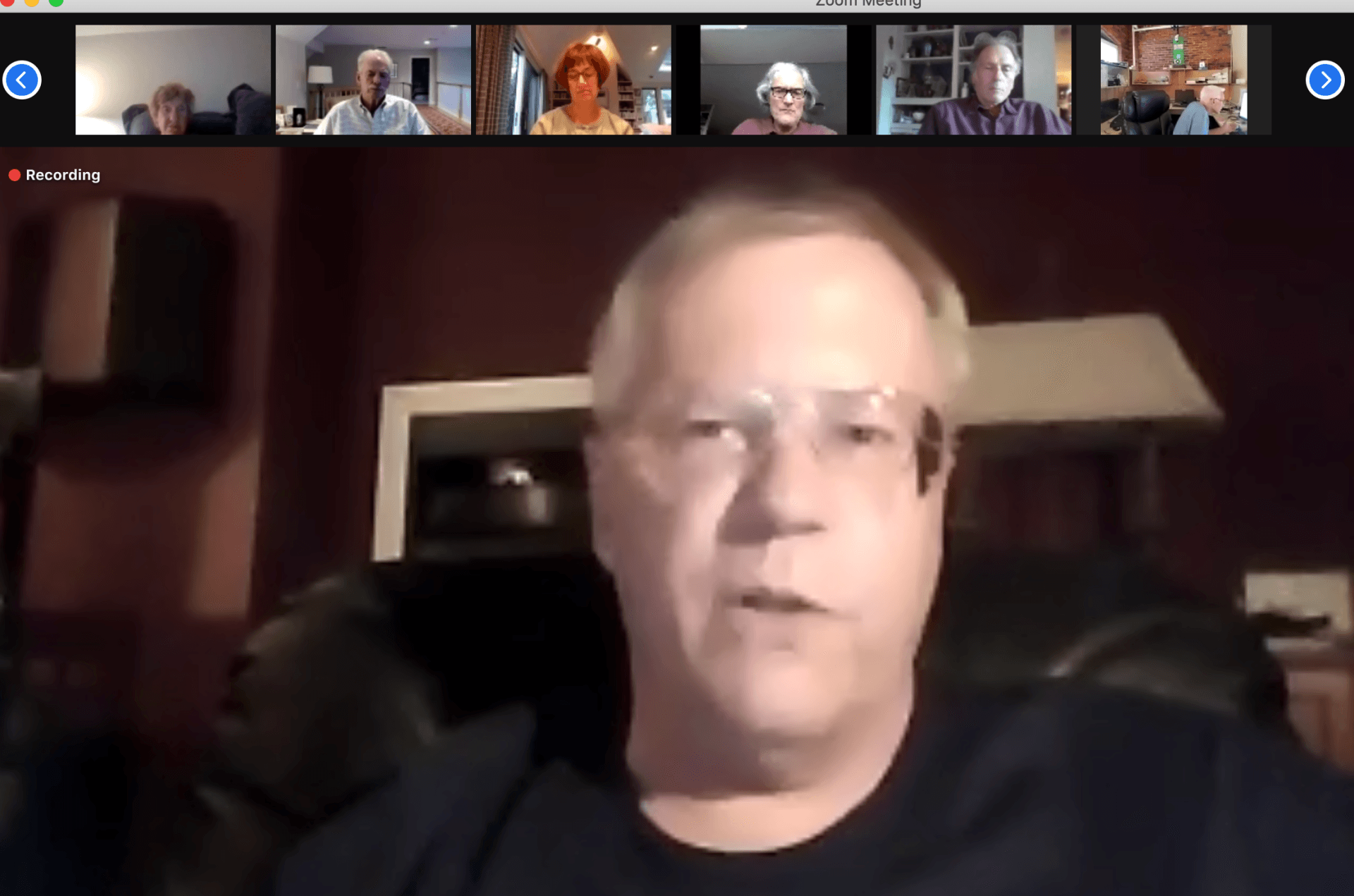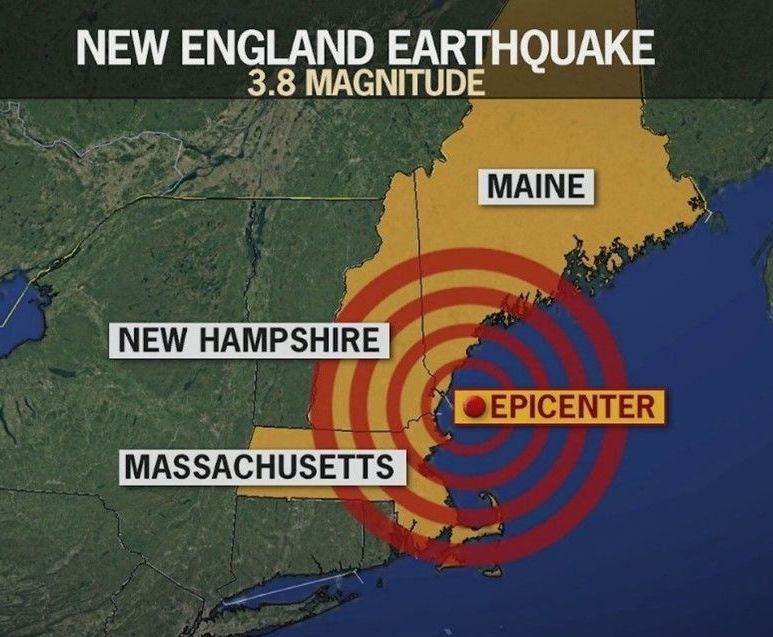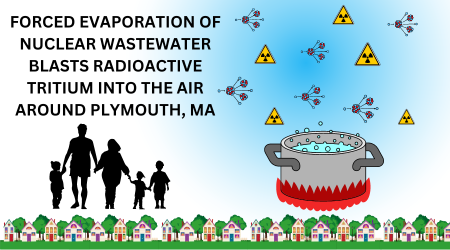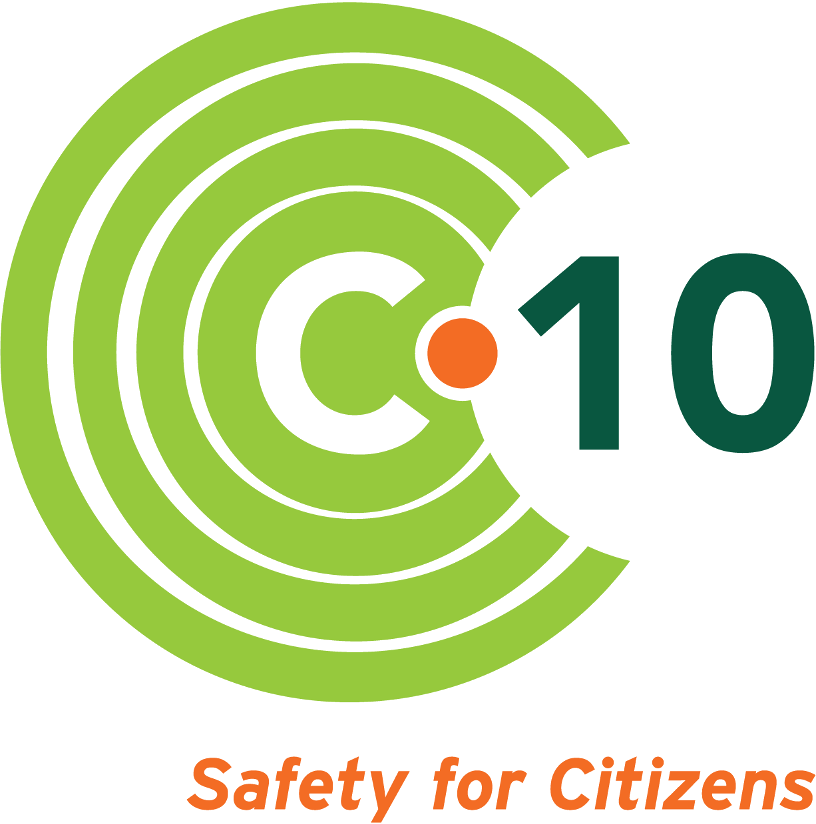The Secret Sauce
- By David Lochbaum
- •
- 22 Jun, 2021
How partnerships between national experts and local advocates can yield results for nuclear safety

Two truths:
- Chattanooga, Tennessee is a long way from Amesbury, Massachusetts.
- We are all pretty Zoomed out, and can’t wait to meet in person!
Yet Zoom made it possible for one of the nation’s most respected nuclear safety experts, David Lochbaum, to share his insights with about 40 of us at C-10’s 2021 Annual Public Meeting, held virtually on June 17.
Dave shared stories about the important role that citizen activists, whistle-blowers and industry experts like himself have played in bringing to light some pretty hair-raising problems at the nation’s commercial nuclear reactors. Yup, we call it “The Secret Sauce,” and it turns out watchdogging regulators and reactor operators is a darned important job, all over the nation.
We are grateful to all who joined C-10's Annual Public Meeting, including David Theodore, of Climate Resilient Internet, who is helping us to make the Citizens Radiological Monitoring Network resilient in the face of climate change and other threats. More exciting news is on the way with that initiative. Stay tuned!You can watch a recording of the meeting and see a video about the resilience project on our YouTube channel, or view the meeting slides on our events page.
Below is Dave’s talk, in its entirety. We sure are lucky to have him on C-10’s Board of Advisors!

Remarks of David Lochbaum, delivered at C-10's 2021 Annual Public Meeting
I joined the Union of Concerned Scientists, or UCS, in October 1996 to work on nuclear power safety issues. Prior to UCS, I’d worked nearly 17 years in the nuclear industry, mostly at operating nuclear plants.
In late 2006, UCS reorganized and I had a new supervisor who was not familiar with my work. It was a good time to look back on my first decade with UCS. I documented my reflection in an internal report titled Nuclear Safety Project 1996-2006: The Ten Year Dash.
My first observation from that effort was that the Nuclear Regulatory Commission, or NRC, is better at establishing safety regulations than at enforcing those regulations. Trying to get the NRC to raise the safety bar isn’t productive when the NRC allows owners to limbo beneath the bar.
My second observation was that the common thread among successful campaigns to trick the NRC into enforcing its regulations involved solid homework and teamwork with local citizens.
Solid homework documented the problem, detailed how and why it violated federal regulations, and explained its safety significance. But solid homework is seldom enough by itself. I often say that NRC stands for Nielsen Ratings Commission. Absent a headline, the most solid homework seldom matters.
In fall of 2001, the NRC staff gathered evidence of problems at the Davis-Besse nuclear plant in Ohio so compelling that they drafted an order requiring the plant to be shut down. I’ve never seen a stronger circumstantial case of impending doom than the NRC staff assembled in drafting that order.
But the draft order, and the safety problems that prompted it, were not made public at the time. There were no headlines. There were not even short articles way back on page 35. The news that fall was the 9/11 tragedy. An NRC senior manager shelved the draft order and allowed Davis-Besse to tempt disaster.
When Davis-Besse finally shut down for refueling in 2002, the NRC staff’s fears were confirmed – the NRC calculated that Davis-Besse came closer to nuclear disaster than any U.S. reactor since the meltdown at Three Mile Island in 1979. The plant had so many safety problems that it took an army of workers more than two years to fix enough of them for the NRC to allow it to restart.
Teamwork makes a huge difference in the value of solid homework. George Galatis, then an engineer for the Millstone nuclear plant in Connecticut, compiled solid homework about spent fuel pool problems on Unit 1. George had seen other workers at Millstone raise issues to management and the NRC to no avail. George partnered with We The People, a local group, to petition the NRC in August 1995 about the safety problems. The teamwork resulted in a TIME magazine cover story in March 1996. Millstone Unit 1 never split another atom.
Most of the safety problems that arose when I was at UCS affected more than one nuclear plant. Whenever possible, I pursued the matter at a nuclear plant where I could team up with local citizens. Once successful there, I’d try for the ripple effect to get it fixed elsewhere.
Local citizens prepared the media and elected officials on nuclear plant safety issues and concerns with NRC’s oversight. Those efforts built a foundation that greatly enhanced receptiveness to listening to concerns. Absent the foundation, media representations and elected officials often lack the time needed to come up to speed on technical issues and default to accepting whatever yarns the company and the NRC spin for them.
I first experienced the power that local citizens can wield during my 17 years working at nuclear power plants. I worked at the Hatch nuclear plant in Georgia, the Browns Ferry nuclear plant in Alabama, and the Susquehanna nuclear plant in Pennsylvania. None of these plants had local groups monitoring their performance.
I also worked at the Grand Gulf nuclear plant in Mississippi. A local group backed by a Member of Congress named Representative Ed Markey (now U.S. Senator from Massachusetts) put a huge spotlight on performance problems there. Likewise, I worked at the Hope Creek and Salem nuclear plants in New Jersey. A Senator from Delaware by the name of Joe Biden focused attention both on safety problems at the plants and the NRC’s inability and/or willingness to get them fixed.
Having worked at nuclear plants with and without external scrutiny, I’ve seen how big a difference it makes. A worker can make a mistake that accidentally trips the reactor or causes a violation to be reported to the NRC (and the media). A worker making such a mistake at a nuclear plant in the spotlight faces much bigger career trouble than a worker making the same mistake at a plant in the shadows.
No worker wants to make a mistake. But workers take extra steps to avoid mistakes when mistakes come at high cost to them personally.
C-10, and organizations like it, compel plant workers and NRC inspectors to try their best. No one wants to read about their mistakes on page one.
C-10 has built a very strong foundation that has enabled many successes over the years. For only one of many examples, C-10 teamed with a renowned concrete expert to compel additional monitoring of the degrading concrete at Seabrook. The company and the NRC fought the measures, but C-10’s foundation provided its expert the platform needed for right to prevail.
I am glad to be on C-10’s Advisory Board because the organization pursues the right issues, the right way, for the right reasons. Three rights cannot make it wrong.
Follow us



